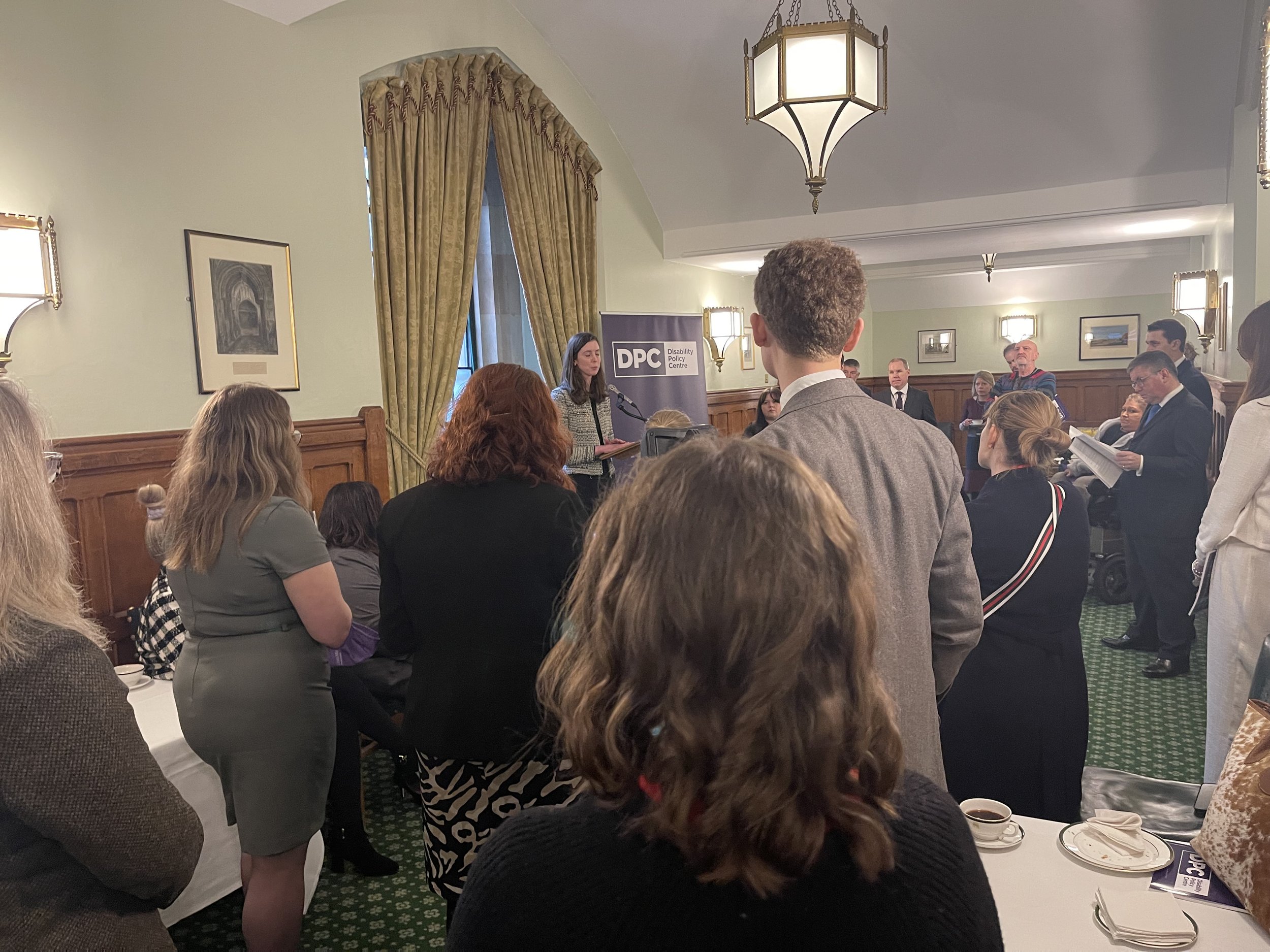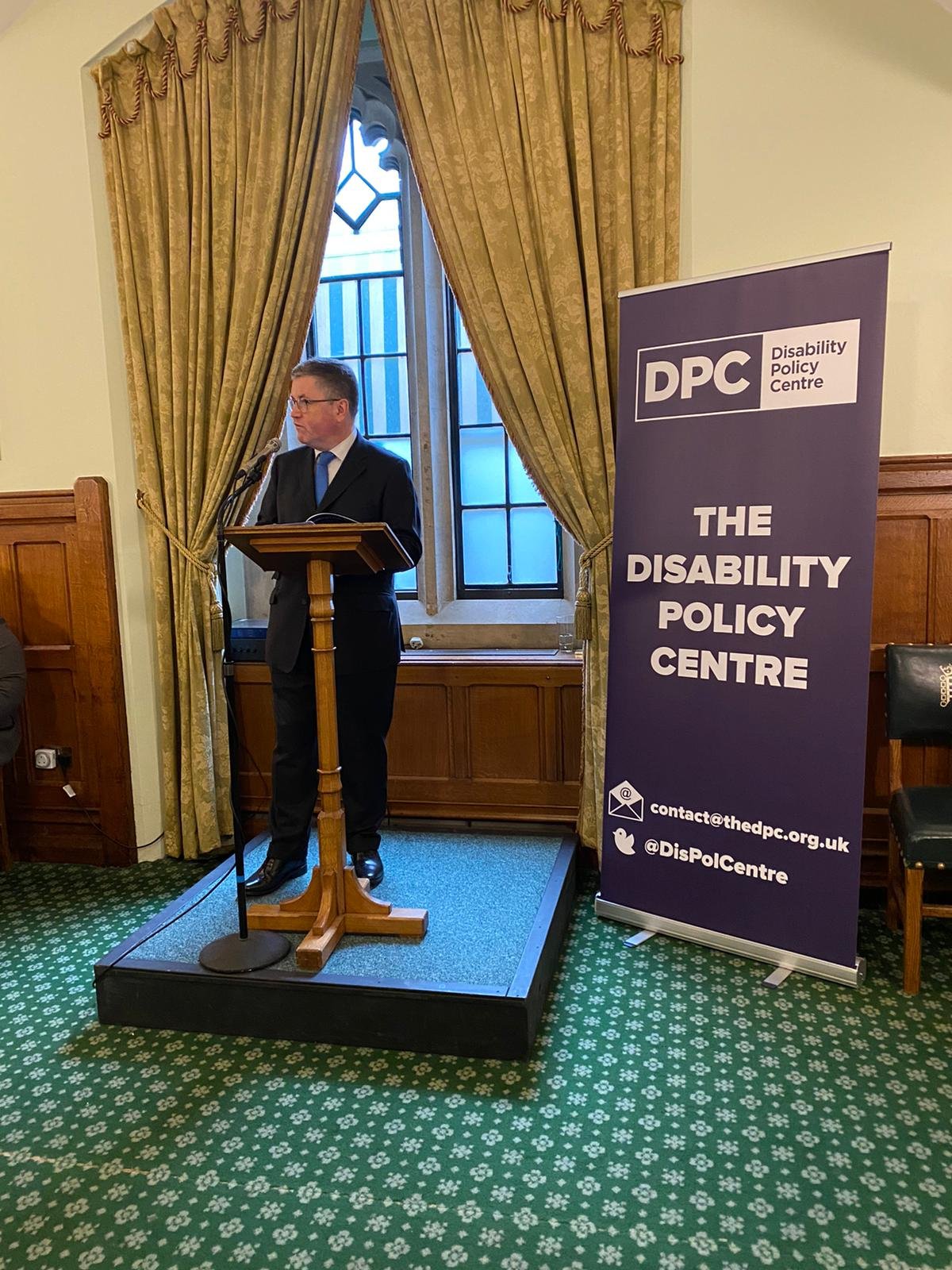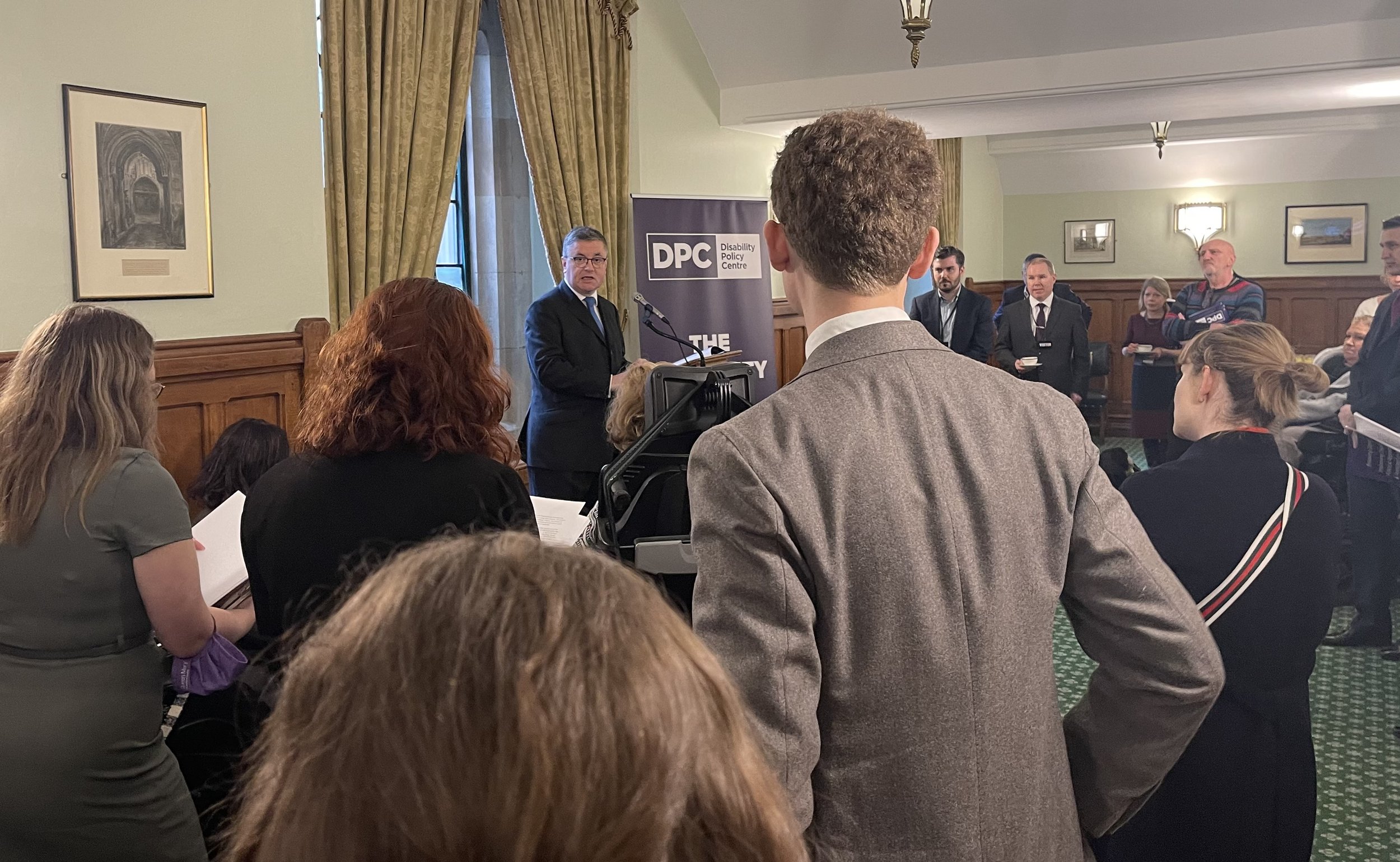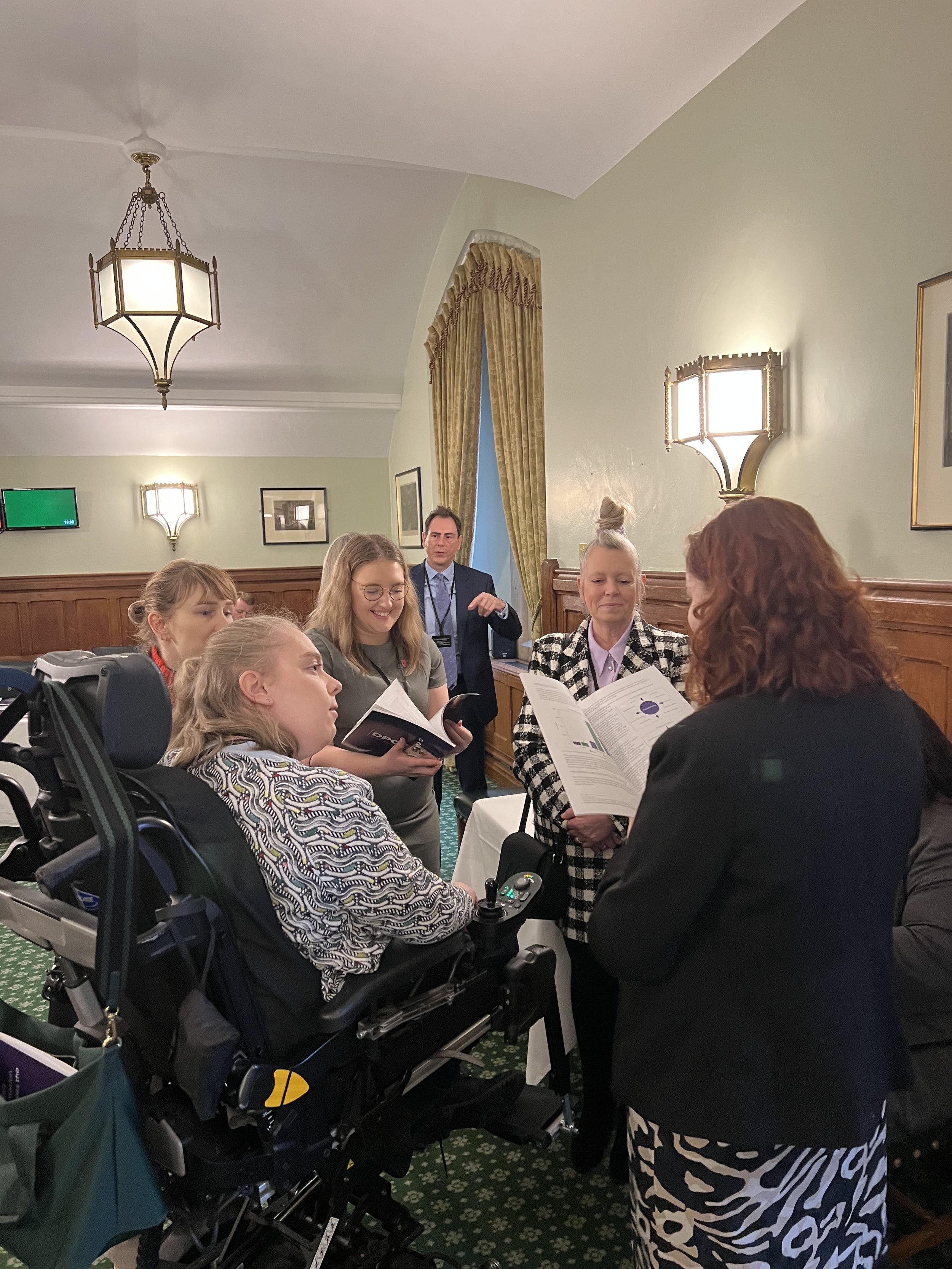Breaking Down Barriers: Improving Disabled Political Representation & Participation Across The United Kingdom
Rightly given the name ‘The Mother of All Parliaments’, the United Kingdom is home to one of the oldest democracies in the world, the very concept of modern Parliamentary democratic Government was itself developed in the Kingdom of England in 1688. The current Cabinet of Her Majesty’s Government and the current Parliament of the UK is the most diverse in Britain’s history. However disabled people are still alarmingly absent. Disabled people, despite being one of the largest minority groups of the UK, have for too long been shockingly under-represented throughout our political system, at both a local and national level.
This paper concludes that under-representation of disabled people in political life is often a product of the environments in which people are working. There are simple and effective solutions, to tackle systematic and intrinsic barriers, that must be enacted by both Political Parties and the Government to see a real and tangible shift in the makeup of our political system and increase the representation of disabled people at all levels of public and political life.
“What this report illustrates is the clear need to constantly return to the issues, to surveying and highlighting the stark statistics, to challenge everyone, disabled or otherwise, to do better. To ensure, in short, that issues relating to equality when it comes to disability, are ones for all of us - not just those directly affected. The solutions highlighted by the disability policy centre are frankly not rocket science. In other words, they are not “asking too much". By not investing in practical and necessary measures, engaging and changing attitudes, we lose not only an essential voice and perspective, but great talent and the fulfilment of a desire to serve, an ambition to do well and, of course, an example to others.”
— The Rt Hon Lord David Blunkett
KEY FINDINGS
82% of disabled people, and those with long term health conditions who were interviewed state that they became initially engaged in politics as a direct result of their disability.
72% of disabled people, and those with long term health conditions, engaged and participating in politics as a Councillors, activists or Members of Parliament, state that they do not feel comfortable declaring their disability to their political party for fear of discrimination.
Disabled people make up one in five of the working-age adults in this country. Only 8 out of 650 Members of Parliament have declared themselves disabled, and in Local Government, the number is nearly 700 councillors short of being accurately representative.
“ I am pleased to see the Disability Policy Centre break new ground as a think tank, and produce thought-provoking work like this. We have already said in the Government’s National Disability Strategy that we want to support disabled people holding or standing for public office. To me, representation and participation are crucial. I look forward to many more contributions from the DPC that can help break down barriers and improve everyday life for disabled people."
— Chloe Smith MP, Minister for Disabled People, Health & Work
RECOMMENDATIONS FOR GOVERNMENT
Use the Houses of Parliament Restoration and Renewal Program to conduct an extensive review into the accessibility of Parliament for disabled people. Implement any recommendations in full, to ensure that Parliament is accessible for anyone who wishes to seek elected office, visit or be employed in any capacity.
Conduct an extensive review into the accessibility of Local Authority buildings across the United Kingdom. Work with local authorities to ensure that services are to a high standard and completely accessible for disabled people.
Reinstate a formal funding scheme for Disabled Candidates.
Political parties to report annually to The Minister for Disabled People, Health and Work on what measures they are putting into place to break down barriers for disabled people within the organisation.
RECOMMENDATIONS FOR POLITICAL PARTIES
Encourage party staff, elected representatives and local association leaders to undertake reviews into how to include and promote disabled party members within their structures. As part of this process, it is recommended that training is implemented for staff and volunteers, to highlight how to break down barriers for disabled people in the organisation.
Widespread & Sustained Commitment to the Disability Confident Employer Scheme.
Political parties must acknowledge that current campaigning techniques are not viable for everyone, and actively promote accessible campaigning methods for their members. These techniques must not be viewed as being less credible than traditional campaigning methods.
Political parties must conduct immediate reviews into their candidate selection processes for elected representatives at both a local and Parliamentary level, ensuring that all barriers to engagement and participation have been removed where possible.
Download The Full Paper
The Disability Policy Centre have provided three formats of this paper to ensure complete accessibility. This includes a PDF, easy-read PDF and audio file. If you require an alternative format please do not hesitate to contact us.
Click Here to Download Full Report
THE LAUNCH
We were delighted to launch our ‘Breaking Down Barriers: Improving Disabled Representation & Participation Across The United Kingdom’ paper in Parliament on 1st March 2022, together with representatives from across both the charitable and private disability sectors. On the day, our Directors were thrilled to welcome The Rt Hon Sir Robert Buckland MP to introduce the paper, who provided a rousing speech highlighting the importance of the implementation of recommendations to improve representation and participation across the United Kingdom.
